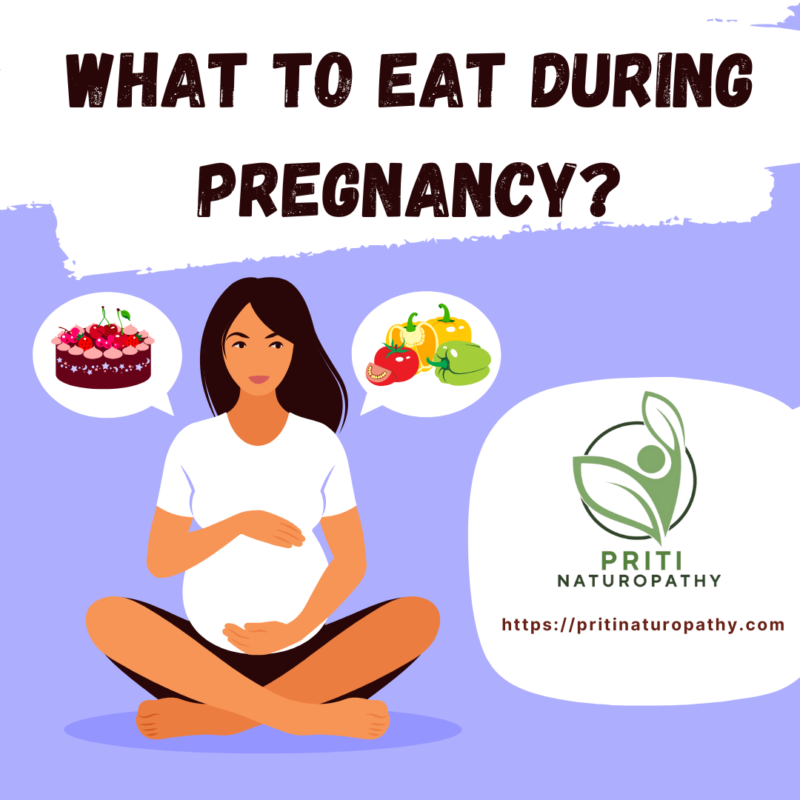Introduction
The stage of pregnancy is likely to cause changes in the pattern of life, as well as, eating habits of the woman. There are certain changes in the body functioning occur in the initial stages of pregnancy. These changes necessitate modification in the meal patterns. Further, the nutrient requirement also increases because of which qualitative and quantitative changes need to be made in the meals. In this article, we learn about the various changes and the basic factors that need to be considered for pregnancy meal planning.
What to eat during pregnancy?
Generally, a mixed diet consisting of food items from each of the three major food groups (namely energy-giving, bodybuilding, protective/regulatory) would help meet the requirement. But you must aware that the requirement for energy, protein, calcium and iron is maximum during pregnancy. Hence, from the three major food groups, include more of cereals, pulses, milk and milk products, green leafy vegetables in the diet. Meat/fish/poultry, eggs may be included if acceptable. Also, if income permits nuts/oilseeds may be considered.
Which nutrients are of particular importance?
The requirement for a few specific nutrients is considered during pregnancy, that are:
- Energy giving nutrients (carbohydrates and fats)
- Proteins
- Calcium
- Iron
What should be the daily meal patterns in pregnancy?
To meet the increased demands of pregnancy, the food intake increases. The question now is how to increase the daily food intake? Well, that’s simple. To begin with, you can try increasing the amount of food normally eaten at each meal. For instance, in a meal (i.e lunch) consisting of chapati/rice/dal/ vegetable/curd one could increase the number of chapatis or the amount of rice or increase the amount of dal/vegetables normally consumed. If possible, you can include a little more curd. But it is generally observed that pregnant women cannot eat much at one time because of the various digestive changes that occur during pregnancy. The only alternative then is to provide small but frequent meals.
The meal frequency i.e. the number of meals consumed in a day, would increase to accommodate the increased food intake. In addition to the three main meals i.e. breakfast, lunch and dinner, some other foods/food preparations must be included in the daily diet at different times of the day – say mid-morning, mid-afternoon, teatime. You can plan your daily meal pattern like that:
- Bed tea
- Breakfast
- Mid-morning meal
- Lunch
- Mid-afternoon meal
- Tea
- Dinner
- Bed time
What are the best foods for pregnant women?
Leafy Green Vegetables (Spinach, Methi, Kale, etc.)
Rich in folate, iron, calcium, and fiber—crucial for brain development and preventing neural tube defects.
Dairy Products (Milk, Curd, Paneer, Cheese)
Excellent sources of calcium and protein for bone development and strengthening the mother’s bones and teeth.
Lentils and Pulses (Moong, Masoor, Rajma, Chana)
Packed with plant-based protein, iron, and folate. Helps in baby’s tissue growth and prevents anemia in the mother.
Whole Grains (Wheat, Brown Rice, Oats, Quinoa)
Provides long-lasting energy, fiber, and B-vitamins. Keeps constipation at bay.
Nuts and Seeds (Almonds, Walnuts, Chia, Flaxseeds)
Rich in omega-3 fatty acids, magnesium, and protein—great for brain development and reducing inflammation.
Eggs
High-quality protein + choline for baby’s brain and spinal cord development. Also provides healthy fats.
Seasonal Fruits (Banana, Apple, Orange, Papaya – ripe, etc.)
Loaded with fiber, vitamins, and natural sugar. Keeps digestion smooth and boosts immunity.
Sweet Potatoes
Rich in beta-carotene (converted to Vitamin A in the body), essential for baby’s cell growth and vision.
Iron-rich Foods (Beetroot, Pomegranate, Jaggery, Dates)
Boosts hemoglobin and helps prevent fatigue and anemia in pregnancy.
Water & Herbal Fluids (Coconut water, Green Tea, Lemon Tea, Juices, Shakes)
Staying hydrated is key! Helps with digestion, reduces bloating, and supports amniotic fluid.
Fish (Especially fatty fish like salmon) – if non-vegetarian
High in DHA (a type of Omega-3) essential for fetal brain and eye development. Avoid high-mercury fish.
Yogurt (Dahi)
Probiotic-rich, supports gut health and provides calcium and protein in one go.
What are the other specific considerations?
During pregnancy certain digestive changes commonly occur, nausea, and/or vomiting is common, especially in the early morning. This is referred to as morning sickness. Similarly, heartburn and a feeling of fullness or heaviness is common and sometimes troublesome especially in the third trimester of pregnancy.
The occurrence of constipation during the second half of pregnancy, is also common. All these changes cause a lot of stress and discomfort to the woman. How to overcome this discomfort? Certain changes in the eating habits, meal pattern and the kind and number of foods selected need to be made. Here are simple tips on how to deal with these situations.
To overcome morning sickness
One should provide carbohydrate-rich foods/food preparations like biscuits, rusks, bread etc to the woman early in the morning (preferably with bed tea). In addition, foods which have a strong odour and flavour or those which leave a taste long after being eaten should be avoided.
To overcome heartburn
the feeling of heaviness/fullness, one should restrict eating fatty or fried foods. One would also benefit by not eating much at one time. Rather one should eat small frequent meals.
To prevent constipation
One should take plenty of fibre-rich foods and adequate amounts of fluid in the diet:
Foods like vegetables (specially green leafy vegetables), whole grain cereals/pulses (like wheat, bengal gram, black gram, horse gram) are rich sources of fibre. More of these foods should be included in the diet.
But at times it is observed that certain fiber-rich foods, especially whole pulses like black gram and cauliflower among vegetables, when consumed, produce a lot of gas in the body. This causes considerable discomfort. It is suggested that the use of these foods should be restricted, but only if not tolerated.
Water (at least four to six glasses) and other drinks/beverages such as milk, buttermilk, coconut water, lime juice etc. should be taken in-between meals so as to help in the movement of food through the digestive tract, thus preventing constipation.
POINTS TO REMEMBER
DO’S
- Ensure that the pregnant woman attains adequate weight gain (i.e. 10-12 kg) during pregnancy
- Include more of cereals, milk and milk products, pulses/nuts/sprouted grains and green leafy vegetables in the diet of pregnant women
- Give iron/folic acid tablets right from the second trimester onwards.
- Use iodised salt for cooking.
- Give small, but more frequent meals during the day.
- Provide nutritious snacks in between meals.
- Eat biscuits, rusk or any other carbohydrate rich food items early in morning to prevent morning sickness.
- Include fibre-rich foods and plenty of water in the diet to relieve constipation.
- Drink fluids between meals rather than with them.
- Do simple exercises daily.
- Ensure you should take adequate rest after each meal.
DON’TS
- Avoid serving too much food at one time (one meal).
- Avoid the consumption of foods with strong flavours.
- Restrict the use of spicy, fried and fatty foods.
- Smoking or consuming alcoholic beverages.
- Avoid giving drugs except when prescribed by a doctor.
- Avoid eating too much of tea or coffee.
- Avoid doing strenuous heavy work.
- Avoid excessive weight gain during pregnancy.
FAQS
Which fruit is best for pregnancy?
Bananas, apples, oranges, pomegranates, and ripe papayas in moderation are excellent choices. They are rich in fiber, antioxidants, and essential vitamins.
What foods should be avoided during pregnancy?
Avoid processed foods, too much caffeine, raw or undercooked meat, high-mercury fish, and unpasteurized dairy products. Also, steer clear of street food and foods with artificial additives.
Can I eat dry fruits and nuts during pregnancy?
Yes! Almonds, walnuts, raisins, dates, and figs are highly beneficial. They offer protein, fiber, iron, and healthy fats. Just eat them in moderation.
How many meals should a pregnant woman eat per day?
Ideally, 5–6 small, frequent meals a day are better than 2–3 heavy meals. This supports digestion, prevents nausea, and provides constant energy.
Is eating curd good during pregnancy?
Absolutely! Curd (dahi) is rich in calcium, protein, and probiotics which help in digestion and boost immunity.
How much water should I drink daily during pregnancy?
At least 8–10 glasses a day. Add jeera water, ajwain water, or coconut water to your routine to support digestion and hydration.


Leave a Reply